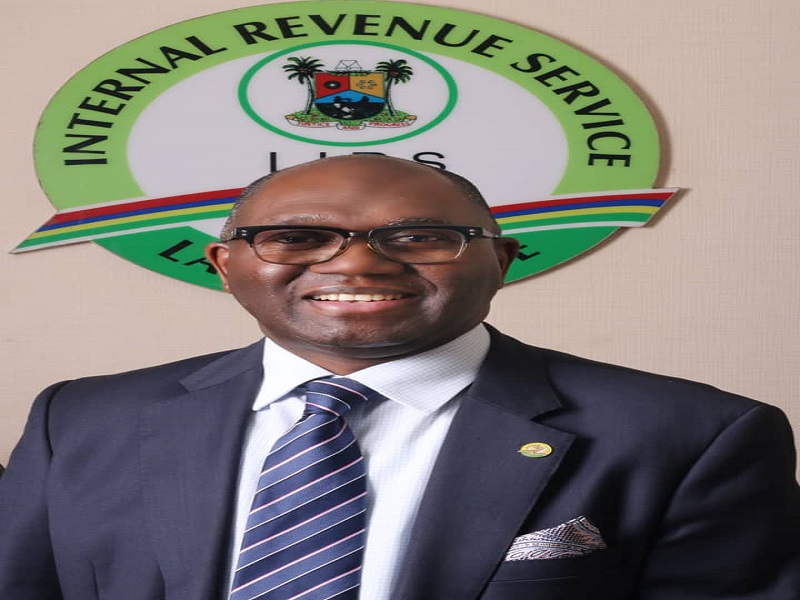News
Samsung Aids Teachers’ Training via Smart School Initiative

In furtherance to its commitment towards sharing innovation to build a better society, Samsung Electronics West Africa has launched the Samsung Smart School for Teachers at the Federal Government Boys College in Apo, Abuja, in partnership with the Federal Ministry of Education Abuja.
The Samsung Smart School for Teachers in Apo will be the first of five launched in Nigeria, with others planned for Ogun, Rivers, Delta and Imo states.
This will result in a collective 10, 000 teachers receiving training as primary beneficiaries, and a further 5, 000 students impacted as secondary beneficiaries, over a five year period.
“The Samsung Smart School concept is implemented in urban schools with the infrastructure, but not the skills needed to use IT for teaching and learning,” explains Mr. Brovo Kim, Managing Director, Samsung Electronics West Africa.
“In line with the United Nation’s Sustainable Development Goal to improve education, we believe it is essential to equip teachers with basic computer literacy, as well as the tools they need to use ICTs for curriculum development and more impactful teaching; and the Samsung Smart School for Teachers is an important step in achieving this.”
With the launch of the Samsung Smart School for Teachers at the Federal Government Boys College, teachers will receive training to empower them to access digital content, share it with students, monitor students’ progress and conduct assessments.
The initiative is part of Samsung’s global efforts to use technology to increase the quantity of students who have access quality learning materials and facilities, as well as to improve the quality of education given out by tutors.
Representing the newly appointed Federal Minister of Education, Mr. Adamu Adamu, permanent secretary, Ministry of Information, Dr Folasade Yemi-Esan expressed her excitement about the impact this will have on education in Abuja.
She recognized and applauded Samsung’s effort and contribution towards ICT development within the country.
“We are indeed grateful to Samsung for tapping into the goal of the ministry of education to train quality teachers. We encourage all beneficiaries of this project to take full ownership of the project and let the improved quality of teaching reflect in our students’ results” she said.
Mrs. Yemi-Esan urged all stakeholders in the education sector to partner with the ministry of education to salvage the country’s educational system. Concluding her remark, she added, “As ICT becomes more and more entrenched in our lives, it is essential that our students are exposed to it, guided by teachers who can use technology to add real value to the learning experience.”
Expressing his gratitude, Mr. Jonathan Mbaakaa, the principal, Federal Government Boys College, Apo, added that for relevance in the digital age, teachers must do a lot in the area of ICT knowledge and application, if the teaching profession is to transform to global level of relevance and competitiveness.
“With the help of this Samsung Smart School, I believe we will be well on our way to ensuring just that even as our teachers will not have the opportunity to easily access quality teaching resources and in return impact our students with quality knowledge” he said.
Nigeria is the latest country to benefit from the Samsung Smart School initiative, with other Samsung Smart Schools already in place in countries like Togo, Senegal, Kenya, Ghana and Rwanda amongst others.
News
Firms Commit to Boost African Robotics Market

AfricAI and Micropolis Robotics have signed a multi-year exclusive distribution and deployment agreement, which marks one of the continent’s most significant robotics market entries.

Micropolis AI Robotics is a United Arab Emirates-based robotics manufacturer operating in autonomous systems, while AfricAI is a company building practical, revenue-driven artificial intelligence (AI) systems for African businesses, governments, and global partners operating in emerging markets.
According to the agreement, Micropolis Robotics named AfricAI as its exclusive continental partner, prohibiting direct sales, alternative distributors, and third-party agents from operating in the territory.
The partnership establishes AfricAI as the primary execution, localisation, and go-to-market platform for intelligent robotics in Africa’s industrial, security, logistics, and infrastructure sectors.
AfricAI said this exclusive mandate positions the company as the gateway for advanced autonomous systems entering African markets, ensuring regulatory compliance, local capacity building, and sovereign control over deployment frameworks.
The partnership, according to the two parties, moves beyond software- based AI into the realm of physical AI — intelligent machines capable of operating in complex, real-world African environments.
“This is not a collaboration, it is a market-shaping mandate,” said Fareed Aljawhari, CEO of Micropolis Robotics. “AfricAI now represents the exclusive gateway through which Micropolis technologies enter Africa. Their sovereign AI vision, operational reach, and regulatory fluency make them the only partner capable of executing at a continental scale.
Furthermore, the agreement enables AfricAI to integrate Micropolis’ autonomous robotics systems with AfricAI’s sovereign AI stack, resulting in AI-powered security and surveillance platforms, robotics-enabled logistics and port operations, industrial automation, smart infrastructure, and municipal robotics tailored to African operating conditions.
Initial deployments will commence in security, smart infrastructure, and logistics, with phased expansion across multiple African states as part of AfricAI’s broader continental AI, data, and intelligent infrastructure strategy.
The agreement also includes long-term performance-linked expansion rights, automatic renewals, and a defined localisation framework to support robotics deployment, workforce training, and skills transfer across Africa.
Prince Malik Ado-Ibrahim, executive chairman of AfricAI, said: “Africa does not need imported automation — it needs sovereign, context-aware intelligent systems. This exclusive mandate allows AfricAI to industrialise robotics deployment at scale while retaining control, compliance, and value creation on the continent.”
News
Subair: LIRS Won’t Raid Accounts – Unless You’ve Lost Every Court Battle

Lagos State Internal Revenue Service Executive Chairman Ayodele Subair Tuesday demolished online panic over alleged bank account raids, insisting the agency’s “Power of Substitution” targets only hardcore tax dodgers who have exhausted every appeal from tribunals to the Supreme Court over half a decade of disputes.

Ayodele Subair
Subair, speaking on Arise TV, shredded viral fears that LIRS would swoop on residents’ savings without warning, clarifying the mechanism under Section 60 of the Nigeria Tax Administration Act 2025 kicks in solely after assessments spark objections, reconciliations, demand notices, and a gruelling courtroom odyssey through High Court, Court of Appeal, and apex rulings.
The LIRS weekend notice had ignited fury by announcing enforcement via third parties – banks, employers, tenants, debtors – to claw back unpaid Personal Income Tax, Capital Gains Tax, Stamp Duties, and Withholding Tax from chronic defaulters holding funds or owing money to them, whether due now or accruing later.
Subair likened the process to a “long timeframe, not less than five years,” where recalcitrant bigwigs who stonewall every step become fair game, with LIRS directing agents like customers or partners to divert payments straight to the taxman in lawful settlement.
Far from arbitrary grabs, the chairman stressed it’s a final resort for “entirely recalcitrant” holdouts who ignore Notice of Refusal to Amend (NORA) and every olive branch, ensuring Lagos coffers snag rightful revenue fuelling the state’s bulging budget without shotgun raids on compliant payers.
As social media buzzes with defiance – “They can’t touch my account!” – Subair’s blueprint spotlights Nigeria’s tax evasion scourge starving subnationals of trillions yearly, with Lagos alone chasing billions in arrears amid federal revenue wars and economic headwinds squeezing the commercial capital’s 25 million souls.
Industry voices nod to the legality but plead for digital dashboards tracking disputes transparently, warning overzealous recovery could spook investors in Africa’s fintech and startup mecca already reeling from naira nosedives and grid glitches.
With LIRS poised to unleash the hammer on vetted violators, Subair’s clarion call aims to separate myth from muscle, bolstering Lagos’ IGR juggernaut that hit N815 billion last year while daring defaulters to test the full judicial gauntlet before crying foul.
News
NIGCOMSAT Adopts Government’s Performance System

Nigerian Communications Satellite (NIGCOMSAT) Ltd, in a strategic move to modernise its operations and foster a results-oriented workforce, has officially adopted the Federal Government’s Performance Management System (PMS).

The initiative, aimed at driving efficiency and institutionalising accountability, was marked by an intensive staff training program designed to align the agency’s operations with national performance goals and the Presidency’s vision for a digital-first public sector.
According to a statement from Stephen Kwande, the Agency’s acting head of Corporate Affairs, “the transition to PMS is a departure from historical evaluation methods. The new system is designed to provide real-time performance tracking and instill a stronger work ethic across all directorates”.
Welcoming participants, Mrs. Jane Nkechi Egerton-Idehen, managing director/CEO of NIGCOMSAT, represented by Abiodun Attah, executive diirector, Technical Services, described the adoption as “long overdue.”
She emphasised that the system is critical for ensuring that NIGCOMSAT contributes effectively to Nigeria’s broader digital economy targets.
In her opening remarks, Mrs. Chinwe Udogu, general manager, Human Resources Management, expressed NIGCOMSAT’s enthusiasm for the program, urging staff to dedicate themselves fully to the three-day training.
She noted that the exercise was pivotal in repositioning the company to achieve its highest aspirations.
The training consultant, Mrs. Njoku Chioma, said the program is expected to drive culture change, automate work processes, and strengthen institutional performance.
The three-day training, jointly organised by the Office of the Head of Service of the Federation and NIGCOMSAT Management, covers key themes including:
• Overview of the FCSSI25 as an institutional performance-driven Federal Civil/Public Service
• Service culture and workplace attitude in the Nigerian public sector
• Implementation of the Performance Management System in NIGCOMSAT
• Application of Artificial Intelligence tools to enhance performance in the Nigerian public sector
The move comes at a time when NIGCOMSAT is expanding its footprint, with recent initiatives like the 2026 SpaceTech Accelerator Programme and partnerships for grassroots digital skills training.
By strengthening its internal management framework, the agency aims to ensure that its technical advancements in satellite technology are matched by an equally efficient administrative engine.

 Telecom1 day ago
Telecom1 day agoPolice Bust ₦7.7bn Telecom Hack Gang, Seize 400 Laptops in Massive Fraud Swoop

 E-Financial2 days ago
E-Financial2 days agoPayPal Goes Live in Nigeria through Paga

 Broadcasting2 days ago
Broadcasting2 days agoNITDA, NBC Explore Strategic Collaboration on Digital Transformation, Media Regulation

 General News1 day ago
General News1 day agoNaira Smashes Through ₦1,400 Barrier in Official FX Rally

 General News1 day ago
General News1 day agoNCC Slaps ₦250,000 Fee on Trial Licences to Spur Telecom Innovation

 General News2 days ago
General News2 days agoFacebook Powers Connection, Creativity at African Creators Summit 2026

 E-Business2 days ago
E-Business2 days agoGold Hits Record $5,110/Ounce Amid Trump Tariff Threats, Geopolitical Fears

 Telecom2 days ago
Telecom2 days agoTikTok, Instagram Blamed in US Youth Suicide Lawsuit















